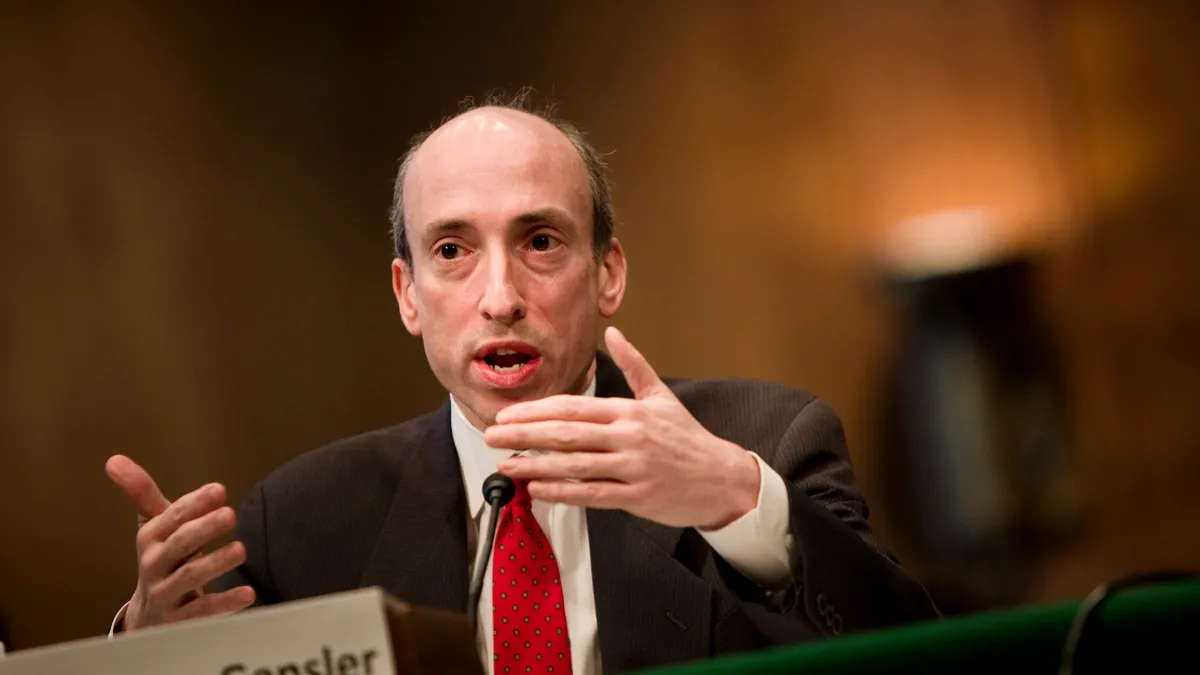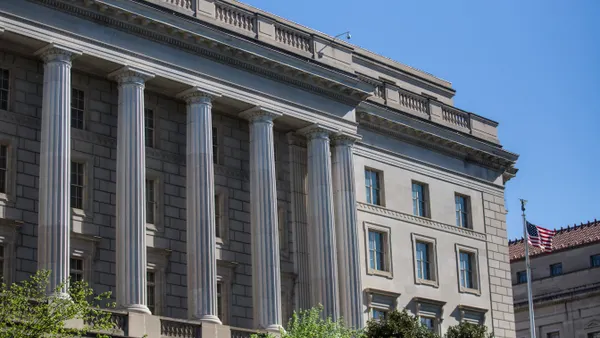Dive Brief:
- Securities and Exchange Commission Chair Gary Gensler warned lawmakers Wednesday that a federal government shutdown would halt SEC enforcement against fraud, insider trading and other wrongdoing while freezing some capital market activity such as initial public offerings.
- “If a company were deciding to go public or raise offerings, they’d want to go effective before Friday, if they’re ready to,” Gensler said in response to a lawmaker’s question during testimony to the House Financial Services Committee. “You could say, largely, the initial public offering market would be shut down with the government.”
- With SEC staff during a partial government closure cut from 5,000 to a “skeletal staff” of about 400, a citizen “can still file a tip, complaint and referral — somebody could file a whistleblower — there won’t be people on the other side to really review it and investigate it,” Gensler said.
Dive Insight:
The Democratic-controlled Senate and Republican-controlled House on Wednesday were well short of agreement over a temporary spending deal as they crafted conflicting legislation to avert a partial government closure after Sept. 30.
During a five-week partial shutdown of the government starting in 2018, the economy lost roughly $3 billion in output, according to the Congressional Budget Office.
Businesses that rely on the federal government are especially at risk, with most owners of small businesses (70%) anticipating a setback from a closure, Goldman Sachs found in a survey with 1,554 respondents.
A shutdown each week would cut about 0.2 percentage points from gross domestic product, Goldman Sachs estimated. The economy would expand by the same cumulative amount during the quarter after a reopening.
“A prolonged shutdown would likely be disruptive both to the U.S. economy and financial markets,” Moody’s Investors Service said in a report Monday.
Also, regardless of duration, a closure “would be credit negative for” U.S. government debt,” Moody’s said.
A shutdown “would underscore the weakness of U.S. institutional and governance strength relative to other Aaa-rated sovereigns that we have highlighted in recent years,” according to Moody’s.
“In particular, it would demonstrate the significant constraints that intensifying political polarization put on fiscal policy making at a time of declining fiscal strength, driven by widening fiscal deficits and deteriorating debt affordability,” Moody’s said.
By downgrading U.S. sovereign debt, Moody’s would fall in line with Standard & Poor’s and Fitch Ratings, which cited similar fiscal and governance weaknesses when cutting their ratings in 2011 and last month, respectively.
As a result of a shutdown, “the confidence in our system can be shaken,” Gensler told the committee.
Several of the panel’s Democratic lawmakers were more blunt about the possible damage.
“It’s going to be the Wild West on Wall Street, all while we’re fighting for capital with other countries and other capital markets systems,” Rep. Brad Sherman, D-Calif., told Gensler and the House committee. “I can’t think of a worst thing we could do to American capitalism.”















